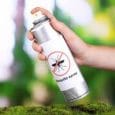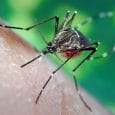Zika is just one of the many detrimental mosquito-borne diseases, scaring people on a global scale. To prevent this disease from taking over huge populations, you should prevent them from biting you and your loved ones. You can make this possible with the help of mosquito repellents.
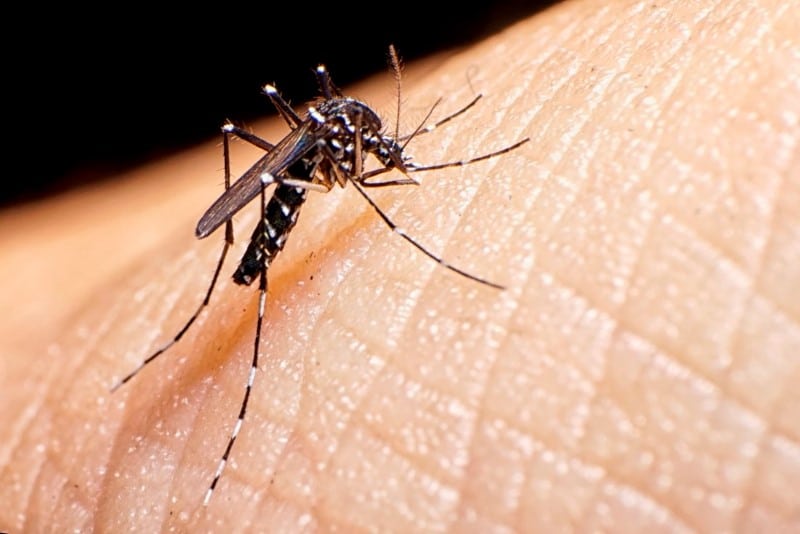
Before you consider using any of the repellents in the market, you should talk to your doctor first. It is always best to know what kind of repellent that is right for you and for your family. It is the most ideal way to keep Zika out of your life. When it comes to effective repellents, take a good look at DEET and picaridin. Perhaps one of these widely-used repellents can help ease your worries about Zika.
Significance of Repellents
Repellents are effective and safe in preventing diseases caused by insects. These compounds can keep bugs such as gnats, mosquitoes, and ticks away. Mosquitoes are known to be the most merciless insect predators. They fly around and then suck blood from people and animals, like tiny vampires. Mosquitoes can lead to the spread of encephalitis, West Nile virus, Dengue fever, and malaria. Ticks, on the other hand, cause Lyme disease.
Insect repellents prevent insect bites, rashes, and skin eruptions. Severe levels of allergic reaction usually happen because of the mosquito’s saliva during the bite. Because of this, the Center for Disease Control recommends the use insect repellents to keep mosquitoes away.
Humans attract all species of mosquitoes and other insects that suck blood. The carbon dioxide in their skin odors and breath draw them in. A repellent is applied to the skin area. It is effective on the skin’s surface and the area close to it. A repellent always has an active ingredient that makes you unappealing to insects such as mosquitoes. It does not kill the insect at all. If the repellent’s active ingredient concentration is high, then it can provide longer-lasting insect protection.
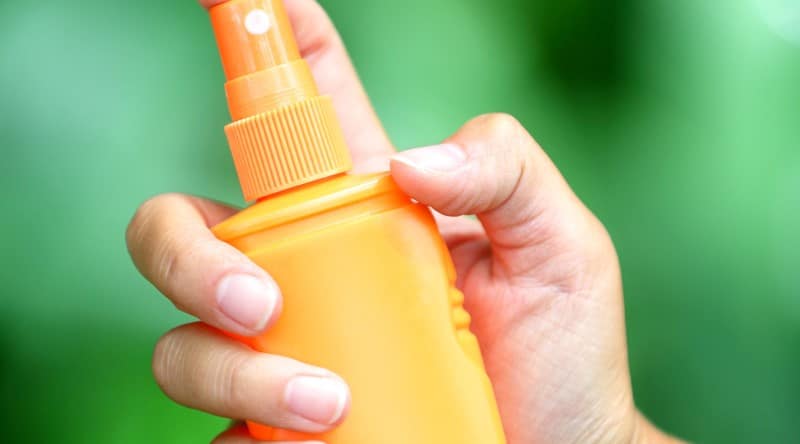
Make sure that you follow instructions carefully when you read the package of the insect repellent you bought. If you plan to return indoors for the rest of the day, wash off the repellent from the treated skin area. Use soap and water. Never apply repellent directly straight on your face. You should spray the repellent on your hands first before you spread it on your facial skin, around your mouth and eyes.
Do your homework and choose the repellent that can protect you for as long as you are outside of the house. Take note that swimming and sweating can reduce the effectiveness of the repellent. You should re-apply as needed. Avoid applying your repellent on children’s hands because they always use their hands for eating. Do not allow kids to apply the repellent by themselves. Always apply it on your hands first before applying it on their sensitive skin. Do not apply repellents on irritated or wounded skin.
If you want your clothes treated, consider permethrin and DEET. Just be sure not to apply permethrin on your skin.
Repellent Side Effects
Common side effects of repellents are eye irritation and allergic rashes. Severe versions of these side effects can be avoided if you follow directions carefully. If you do experience these side effects, you should stop using the product and wash the area with soap and water. See your doctor immediately and be sure to take the product with you.
Repellents and Sunscreen
You can use sunscreen with repellents such as DEET. You should apply your sunscreen first. Then apply the repellent. Follow instructions very carefully. It is not recommended that you use products that contain a combination of sunscreen and repellent. Since you need to apply sunscreen more often, you would be applying repellent more than you need to. This would mean more unnecessary exposure to repellent. When you are exposed to repellents too much, you can experience toxic side effects.
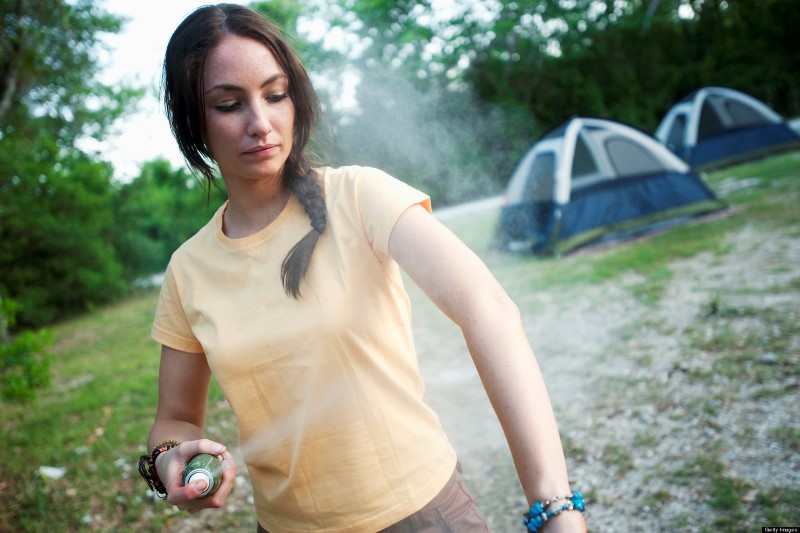
A woman uses insect repellent while camping in Everglades National Park, Florida.
Repellents and Children
There are certain age limits for repellents. If there isn’t any on the product you chose, then you can use it on a child at any age range. Take note that oil of lemon eucalyptus should not be used on kids below three years old. According to the AAP (American Academy of Pediatrics), repellents should not be applied on infants below two months old.
All parents should select repellents that can protect their children in places infested by mosquitoes. You can reinforce the repellents you applied on your children by making the wear long pants and long sleeves. You can also apply permethrin on their bedding or clothes—just not on their skin. Keep your kids away from areas with standing water as well.
What You Need to Know about DEET
Also known as N,N-diethyl-m-toluamide, DEET is a potent ingredient against biting insects such as flies, ticks, fleas, chiggers, and mosquitoes. You can avail of DEET at concentrations between 5% and 100%. Products like Sawyer, Off, Ultrathon, and Cutter. You can avail of DEET in the form of wipes, lotions, and sprays. Be careful when you use DEET products because they can damage watch crystals, synthetic fibers, and plastics.
Based on the Center for Disease Control or CDC, DEET can be used on children more than two months of age. The American Academy of Pediatrics or AAP recommends DEET concentrations no more than 30%. Children should not be exposed to DEET for a long time. They should not ingest it because this results in encephalopathy. There have been reports pf skin eruptions, rashes, urticaria, and mild irritation while using DEET.
Insect repellents usually contain DEET. DEET repels ticks and mosquitoes. A third of Americans use DEET to protect them from diseases transmitted by mosquitoes (malaria, West Nile Virus, and Zika). It is also an effective ingredient in repelling ticks that spread Rocky Mountain Spotted Fever and Lyme disease. DEET is not used on any food item. It is also registered for consumer use.
DEET’s Protection
Since it is the most widely used repellent ingredient, it is sought after in repelling ticks and mosquitoes. DEET can repel ticks for 2 to 10 hours and it can repel mosquitoes for two to twelve hours.
Safe Use of DEET
It is always recommended for pesticides and repellents to be used per the instructions on its label. You should always follow directions for proper use to avoid adverse effects such as skin irritation. Below are the proper ways to use DEET safely:
- Always read instructions. Make sure that you follow them.
- Keep the product away from pets and children.
- Neve apply DEET products on the hands and near the mouth and eyes of children.
- Never apply on irritated or wounded skin.
- Never use DEET or any repellent underneath your clothes.
- Do not over-apply to avoid excessive exposure.
- Before wearing DEET-treated clothing again, wash it.
- When you go back indoors, wash the DEET treated areas of skin with soap and water.
If you are using a pump spray or aerosol DEET formulation, spray it on your palm first and then apply it on your facial skin. Always spray at open, well ventilated areas.
DEET and Children
DEET is known to be approved for children. It has no age limit or restriction. When used normally, DEET does not threaten the health of the general population. This includes kids. It is vital that consumers read the directions indicated on the label of the product.
If you think that your child is suffering from a reaction to DEET, stop using the product. Then, using soap and water, wash the skin area treated with DEET. Visit your doctor. Do not forget to bring the bottle of the product with you.
Facts about DEET
Below are some of the knows facts about DEET:
It does not kill mosquitoes. DEET repels or deters them. It interrupts the receptors and neurons on the female mosquito’s sensing antennae and sensitive mouth parts. These parts are the ones that detect carbon dioxide and lactic acid.
It is potent against other biting insects as well. DEET can repel insects other than mosquitoes. It repels chiggers, biting flies, and gnats as well.
Children can use DEET. If DEET is applied properly, it can be used by children. Instructions should be read and followed carefully. Spray the DEET repellent on your hand first before you apply it on their sensitive skin.
- DEET makes it a hard challenge for mosquitoes to land on your skin. The so-called barrier of vapor on the surface of the skin prevents mosquitoes from landing on your skin.
- DEET was developed in 1946 by the United Stated Army. It was registered in 1957 for military use in highly insect-infested regions.
- DEET is not DDT. DDT was banned in the United States in 1972.
- DEET’s concentration indicates the length of protection. A product with 2% DEET can protect for up to about 2 hours, while a product with 98.25% DEET can repel for up to about 10 hours.

Picaridin is a repellent against chiggers, ticks, mosquitoes, and other insects. It was first synthesized during the 1980s. It was formulated to be like piperine, which is an organic compound. Piperine is found in plants used to make black pepper. Picaridin is a common repellent in Australia and Europe. It has only been available in the U.S. since the year 2005.
You can use picaridin on your clothes or skin in repelling chiggers, biting flies, fleas, ticks, and mosquitoes. You can avail of picaridin I the form of wipes, sprays, aerosols, and liquids. Two dozen brands of repellent have picaridin in the US.
To avoid exposure, you need to follow the label instructions properly. First Aid instructions should be followed to remedy any symptom of exposure. You should then see your doctor immediately.
Remember that picaridin keeps insects from biting. It inhibits mosquitoes from sensing their source or sustenance or prey. It does not kill insects at all.
Exposure to Picaridin
Picaridin exposure can happen through ingestion, skin contact, inhalation, and eye contamination. This ingredient is usually applied on human skin. You may inhale it if you use it around your body, when you are indoors. In here, the vapors linger for longer. It is possible for anyone to swallow picaridin when hands are not washed after handling the repellent. Follow instructions properly and you will reduce your risks in being harmed by picaridin.
Some people have reported experiencing skin irritation when using picaridin. This may be uncommon, but if it happens to you, you should be aware of the symptoms:
- Your eyes are irritated
- Affected kidneys
- Weight loss
Picaridin is nontoxic if you inhale it. According to studies performed on rats, 60% of picaridin is absorbed through the skin. In humans, 6% of picaridin is absorbed through the skin. It is broken down once it is in the body. Both humans and rats excrete their urine after a day’s exposure.
In relation to cancer, it was found out that picaridin does not cause cancer among animals after applying it on their skin for two years. The US EPA concluded that picaridin does not cause cancer based on the skin exposure studies in mice and rats.
Picaridin and the Environment
Based on the studies made by scientists, picaridin that goes into the wastewater enters treatment plants but not the treated water. Picaridin binds to the soil where bacteria degrade it. Picaridin does not end up in ground water based on its properties and its use.
Unfortunately, picaridin is toxic to fish. It tends to build up in the tissues of some known fish. Green algae in water that has picaridin does not grown well than in water that has no picaridin. This chemical compound is not toxic to birds.

